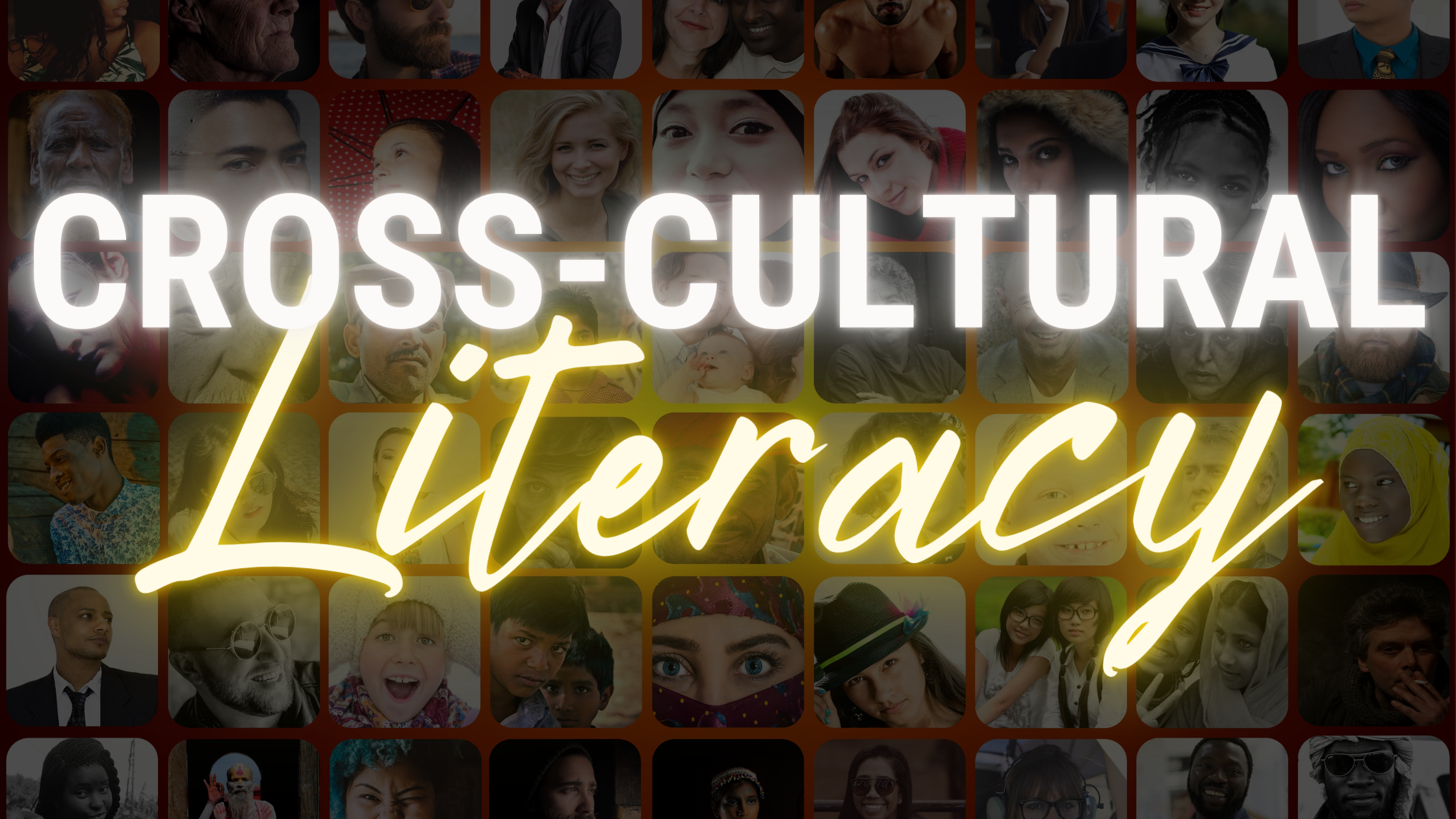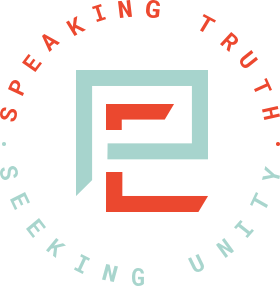I can’t say this strongly enough, but I believe that embracing diversity in our churches is critical not only for creating a more inclusive and equitable society, but also for fulfilling the church’s mission to love God AND love people.
In this blog post, I want to share a number of ways that I believe we can do this for everyone who walks into our buildings.
Education and Awareness
 To get us started, I want you to know that education and awareness-raising are two of the most important steps you can take when it comes to embracing diversity. Engaging with these two is where we begin to understand how we may be unconsciously perpetuating oppressive systems simply because we don’t know enough about the experiences and perspectives of marginalized people groups.
To get us started, I want you to know that education and awareness-raising are two of the most important steps you can take when it comes to embracing diversity. Engaging with these two is where we begin to understand how we may be unconsciously perpetuating oppressive systems simply because we don’t know enough about the experiences and perspectives of marginalized people groups.
Now, there are a number of ways this can be accomplished, but some that come to mind right away are through teachings, workshops & seminars dealing with the topics of racism, sexism, ableism, and other forms of discrimination.
Building Relationships
In addition, forming relationships with people from different cultures and perspectives is also critical to embracing diversity. Our churches can champion this through intentional outreach and engagement efforts such as hosting cultural events and gatherings, forming a multicultural ministry, or working collaboratively with local organizations serving marginalized communities.
Participating in things like these allow us to learn about each other as people and gain a better understanding and appreciation for the diversity that is present within our community.
Encouraging Representation
Another important aspect of embracing diversity is doing the best we can to ensure that all voices within our church community are heard and represented. This can be accomplished by actively seeking out and appointing leaders from diverse backgrounds, providing opportunities for members of marginalized groups to share their experiences and perspectives, and encouraging an inclusive and equitable culture within the church.
 We can also see to provide a safe space for underrepresented people to share their experiences and perspectives, as well as take the time to actively listen and take action on some of their recommendations.
We can also see to provide a safe space for underrepresented people to share their experiences and perspectives, as well as take the time to actively listen and take action on some of their recommendations.
One thing that being a pastor has taught me is that listening is simply not enough. It is the actions taken after hearing from people dealing with difficulty that let’s them know if you truly care about what is happening in their lives.
Worship Styles & Music
 Now, I know this can be a sensitive topic, but I have to express to you that the style(s) of worship music is another avenue of achieving cultural diversity in the church.
Now, I know this can be a sensitive topic, but I have to express to you that the style(s) of worship music is another avenue of achieving cultural diversity in the church.
After spending over 20 years as a Worship Pastor, I can honestly tell you that music really does have the power to bring people together and foster a sense of community and belonging when done well. Let me hit on a few ways I believe the church can embrace cultural diversity through worship styles.
Incorporating a variety of musical musical styles and traditions into worship services is a great way to reflect the diversity within the church community. This can include utilizing a mix of Gospel music, Christian contemporary, hymns, world music, and other styles reflecting your congregation’s diverse backgrounds and cultures.
Another way to celebrate cultural diversity with music is to provide opportunities for congregation members to share their musical talents during worship services. You can do this by reaching out and having members perform a special, lead a song with the worship team, play an instrument or even share their own original compositions.
Here’s a freebie that I’ll throw in as well: Think about what it could look like to include multilingual aspects in your worship service. This can include singing portions of songs, having special prayer times in multiple languages or even having a translator available for sermons.
Providing Support and Resources
To fully embrace diversity, I believe we must do all we can support and resource marginalized communities . This includes offering counseling and support groups to marginalized individuals and families, providing financial assistance to those in need, and working to address systemic issues such as poverty, discrimination, and a lack of access to education and healthcare.
These actions can contribute to the creation of a more inclusive and equitable environment within the church, as well as to the overall well-being of marginalized communities. Furthermore, I can’t express enough how important it is that our churches work to educate our members on the importance of inclusion, equity, and the impact of privilege on those who do not have it.
Another thing we can absolutely do is provide opportunities for members to volunteer and serve in marginalized communities to help bridge the gap and build meaningful relationships. All of these efforts can contribute to helping make a more welcoming environment for people of all backgrounds.
Walking the Talk
 Finally, we as the church, must practice what we preach by actually walking the walk that we like to talk about. This means that we must be willing to actively work to deconstruct oppressive systems within our own buildings, organizations and communities.
Finally, we as the church, must practice what we preach by actually walking the walk that we like to talk about. This means that we must be willing to actively work to deconstruct oppressive systems within our own buildings, organizations and communities.
This includes, but is not limited to, actively combating racism, sexism, ableism, and other forms of discrimination. To do this may mean incorporating a regular self-evaluation, the formation of a diversity and inclusion committee or task force to address any issues, and the diversification of the leadership team and staff.
Unfortunately, one of the worst beliefs I come across when dealing with churches is that simply teaching people about Jesus is enough to eradicate bias & discrimination from their congregation. I’m sorry to tell you, but that’s not going to be enough to solve this problem. I say this because some of my worst experiences with bias & discrimination have actually happened in churches at the hands of people that I believe truly love God.
Please understand that I do believe that blatant racism is choice and an issue of the heart that can only be changed through the love of God. However, bias & discrimination is most often born out of ignorance, and ignorance in any arena can only be cured through education on that specific subject.
This is why people who want to learn to practice medicine don’t sign up for a life group at the church to get their license. Common sense will tell you that more specific education is required.
Fulfilling Our Mission
In my honest opinion, the church has no choice but to embrace diversity if we are going to fulfill our mission of loving and serving all people. The unfortunate reality is this will not happen on accident, or by chance. If the church is going to truly foster a diverse and inclusive environment, those of us in leadership must be proactive and intentional with pushing this forward.
To succeed at this ambitious goal, we must continue actively seeking out and educating ourselves (& our congregations) about various points of view, developing relationships with people from various backgrounds, encouraging representation, and providing support and resources.
For any leader reading this, it is critical for us to recognize that this is a never-ending journey that requires considerable time and effort. However, I believe it is absolutely worth the expense for the sake of creating a more just and loving community that looks more like the Kingdom we’ve been charged to represent.



